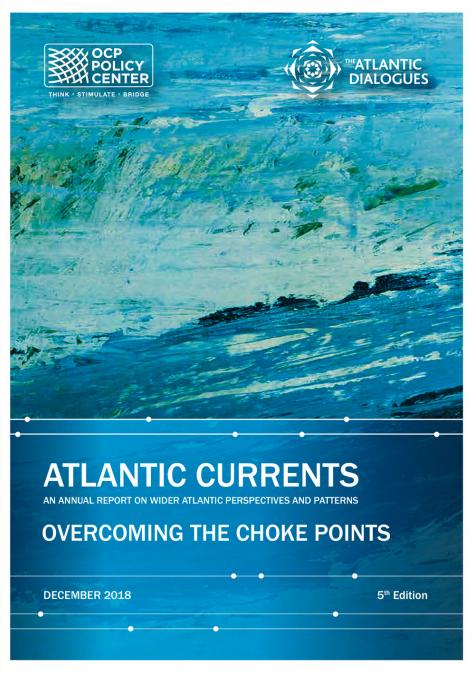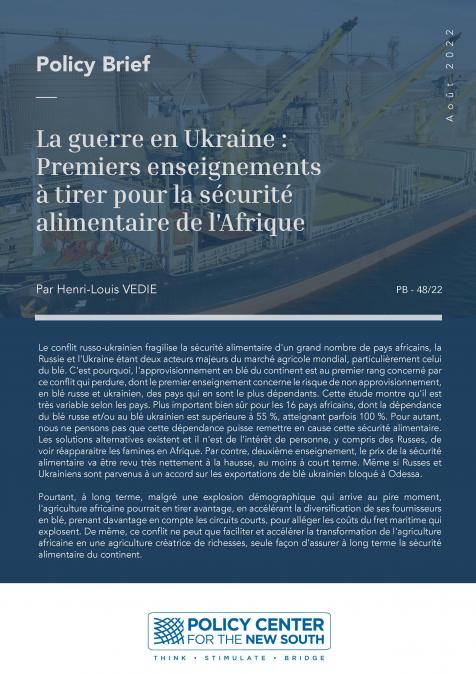Publications /
Annual Report
Book / Report
The yearly Atlantic Currents publication aims to provide a detailed analysis and a fresh perspective about ongoing cultural, economic, political and security dynamics that are shaping the wider Atlantic area today. Launched in December during the Atlantic Dialogues Conference, previous editions explored ways to change mental maps and examined promising opportunities for the African continent.
The chapters in this edition of the Atlantic Currents aim to cover key issues and choke points lying at the heart of this strategic region, ranging from the migration crisis, transatlantic cooperation in food and agriculture, the North-South divide on climate change, the future of multilateral governance in security and international trade, to the prospects of a new global financial crisis. Drawing on the analysis of leading scholars and renowned practitioners in the field of development, this report distills the policy issues at stake for the Atlantic space in a shifting world order and provides a look ahead by identifying opportunities for further integration and cooperation.










